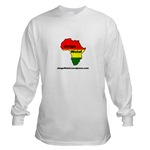From Wikipedia, the free encyclopedia.
Wolof is a language spoken in Senegal, Gambia, and Mauritania, and it is the native language of the ethnic group of the Wolof people. Like the neighboring language Fula, it belongs to the Atlantic branch of the Niger-Congo language family. Unlike many other African languages, Wolof is not a tonal language.
Wolof is the most widely spoken language in Senegal, spoken not only by members of the Wolof ethnic group (approximately 40 percent of the population) but also by most other Senegalese. Wolof dialects may vary between countries (Senegal and the Gambia) and the rural and urban areas. "Dakar-Wolof", for instance, is an urban mixture of Wolof, French, Arabic, and even a little English spoken in Dakar, the capital of Senegal.
"Wolof" is the standard spelling, and is a term that may also refer to the Wolof ethnic group or to things originating from Wolof culture or tradition. As an aid to pronunciation, some older French publications use the spelling "Ouolof"; for the same reason, some English publications adopt the spelling "Wollof", predominantly referring to Gambian Wolof. Prior to the 20th Century, the forms "Volof", and "Olof" were used.
Compared to other African languages, Wolof has had a relatively large influence on Western European languages; banana is a Wolof word in English, and the English word yam is believed to be derived from Wolof/Fula nyami, "to eat food."
Wednesday, February 20, 2008
Subscribe to:
Post Comments (Atom)


No comments:
Post a Comment